Text
A Self-Debate on Faith
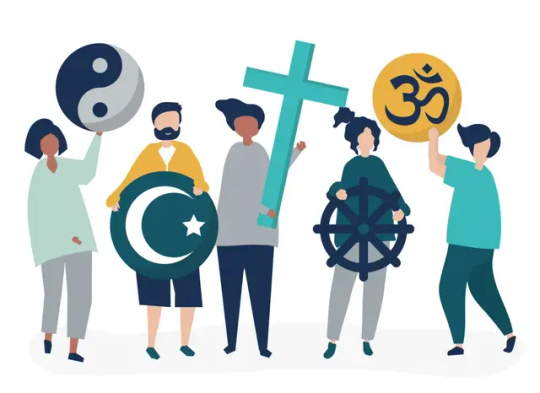
Religion. It’s a word that carries more weight than most people realise. For some, it’s tradition. For others, it’s trauma. For me, it’s something personal—something I don’t talk about much, not because I’m ashamed or hiding, but because it’s complicated. Private. Not neat or rehearsed or certain. Just mine.
I was raised with a sense of faith. Enough to understand the stories, the morals, the quiet strength that belief can offer when the world gets too loud. I’ve walked into places of worship and felt the peace they hold—the stillness, the sanctuary, the soft echo of people placing their pain or hope in something bigger. It’s powerful. It’s beautiful. And I envy those who find unwavering comfort in it.
But here’s where the debate starts inside my own head. Because as much as I see the good, I can’t ignore the damage either.
Faith brings comfort. It creates communities. It gives meaning to the seemingly meaningless. It teaches compassion, forgiveness, love—at least in its purest form.
But people… People complicate everything.
Faith has been turned into fire and brimstone. Used to justify hate, violence, war, and prejudice. It’s been twisted to control women, to shame the poor, to erase identities, to silence questions.
I’ve watched people weaponise God to make themselves feel superior while stomping all over the core of what most religions actually teach: kindness. Humility. Love.
And that contradiction breaks something in me.
Because how can I believe in a higher power when that power seems so quiet in the face of pain? How can I trust there’s a purpose to all this when so many good people are struggling to breathe under the weight of other people’s cruelty? How do you keep faith when every time you look around, injustice wins and the people trying to hold the world together are the ones constantly falling apart?
I ask myself these questions more than I admit. I don’t go to church. I don’t kneel beside my bed and pray every night. But sometimes, in the quiet moments when I feel lost or desperate or just tired of the noise—I still speak. I still hope. Even if I don’t know who or what I’m speaking to anymore.
Because despite all my doubt, there’s still a flicker of something left. Not certainty. Not blind belief. Just… hope.
Hope that there’s a reason I’ve survived what I have. Hope that the pain I’ve carried will one day feel worth it. Hope that someone, something, somewhere out there sees the effort I put in—how hard I try to be better, to heal, to do right by people even when I’m barely standing myself.
I don’t need miracles. I’m not expecting signs. I just want a break. A shift. A stretch of life where things make sense again.
And maybe, just maybe, this small thread of belief—frayed as it is—might be enough to pull me into that future.
I live in the grey space between faith and logic. I question everything. I doubt almost constantly. But I’ve seen enough goodness sparked by belief—not the rules, not the systems, not the institutions—but true belief, the kind that shows up in kindness and sacrifice and mercy—to know it’s not all bad.
So I carry my faith quietly. I don't shout about it. I don’t feel the need to prove it or defend it. And even though it wavers, even though I often feel like I’m hanging by a thread—
I choose to keep holding on.
Because regardless of whether I ever get the answers I want, I still live in hope that this tiny part of me that believes will be enough to guide me toward the luck, the peace, and the life I know, deep down, I deserve.
And that’s where I’m at. Not lost. Not certain. Just in the middle.
Still here. Still hoping. Still holding on.
#FaithAndDoubt#QuietBelief#PrivateFaith#WrestlingWithReligion#HopeInTheGrey#HoldingOnToHope#BeliefIsPersonal#NotAllFaithIsLoud#SpiritualStruggle#FaithWithoutCertainty#QuestioningButHopeful#LivingInHope#StillHereStillHoping#FaithAndFlaws#HealingThroughHope#DoubtIsHuman#ReligionAndReality#HopeForBetterDays#FlickerOfFaith#SearchingForMeaning
0 notes
Text
Had Enough of This Bullsh*t

You know what really f***s me off to my core? Seeing people I care about—people with hearts of gold, people who’d give everything for others—walking around like shadows of themselves. Burnt out. Emotionally drained. Absolutely battered by the actions of selfish, spineless, emotionally stunted waste-of-space humans who’ve got no business being in their lives anymore.
Exes who can’t handle the fact they’re no longer wanted. You got left for a reason—take the hint. You weren’t good for them. You didn’t treat them right. You weren’t the partner they needed. But instead of taking the L and moving the f*** on, you continue to hover, guilt-trip, manipulate, stalk, and gaslight because your fragile ego can’t handle being told no. You weren’t a prize. You were the warning.
Partners who tear someone down bit by bit, until their confidence is dust. People who twist words, shift blame, keep them second-guessing everything about themselves—and then act like the victim when they’re called out. These aren’t relationships. They’re prisons. And it’s horrifying how many people stay in them because they’ve been conditioned to believe this is the best they’ll ever get. That they deserve it. Newsflash: they don’t. You don’t get to treat someone like sh*t and then cry about being misunderstood.
And don’t even get me started on the part-time dads with full-time excuses. The ones who vanish when it suits them, show up for photo ops, then disappear again until the next guilt trip or social media post. Some of you treat fatherhood like it’s a favour to the mum, like seeing your kid is some weapon in a grudge match. You’re not sticking it to your ex—you’re screwing over your child. Grow up. If you made a life, show up for it. End of.
And then we’ve got the wannabe tough guys. The self-proclaimed street kings who get their kicks intimidating vulnerable people just trying to survive. You think you’re hard because you can scare someone who’s already broken? Nah. You’re not hard. You’re a coward in a hoodie with too much time and no soul. Try lifting up someone instead of pushing them further down—you might find it actually takes more strength.
This sh*t has to stop. I'm sick of watching good people crumble under the weight of other people’s cruelty. I’m sick of watching them doubt themselves, question their worth, and settle for less than they deserve.
If you’re reading this and you’re the reason someone cries themselves to sleep, the reason they don’t feel good enough, the reason they flinch at kindness—you are the problem. And you need to fix it, or f*** off out of their life.
People deserve peace. They deserve respect. And they sure as hell deserve better than being collateral damage in someone else’s emotional incompetence.
I’ve had enough of it. All of it.
#HadEnough#ProtectYourPeace#StopTheCycle#TiredOfToxicity#DoBetter#ExesBeGone#EmotionalAbuseIsReal#NotYourPunchingBag#AccountabilityMatters#RealMenShowUp#ParentingNotPerforming#ToughIsKindness#NoMoreManipulation#SupportNotSabotage#VulnerableNotWeak#RespectPeople#WalkAwayWithDignity#YouAreTheProblem#EnoughIsEnough#RageWithReason
0 notes
Text
Juvenile Liaison
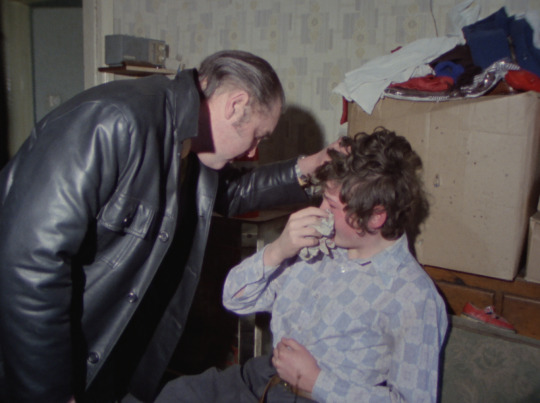
I’ve just finished watching the documentary Juvenile Liaison, and honestly, it’s one of the most unsettling things I’ve seen in a long time. Not because it’s graphic or shocking in a traditional sense, but because it’s real—quietly brutal in its portrayal of how authority figures dealt with vulnerable young people in the 1980s.
The documentary takes you into the inner workings of a police juvenile liaison unit, where officers are given access to children involved in petty crime or deemed “at risk.” What makes it such an uncomfortable watch is the blunt, matter-of-fact way these children are handled—interviewed with no parent or legal rep present, spoken to with pressure, manipulation, and sometimes outright condescension.
It’s not just the tone or the tactics that hit hard—it’s the attitude behind them. There’s this overwhelming sense that these kids were seen as problems to be managed, not people to be understood. Most were from struggling backgrounds, already labelled before they even had a chance to prove themselves otherwise. And the system? Instead of offering a way out, it often just reaffirmed what the world had already told them: that they were destined to fail.
Watching these interactions, it’s hard not to feel a knot form in your stomach. You want to reach into the screen and tell these officers to back off, to ask different questions, to listen instead of assuming. But more than that, you want someone—anyone—to step in for those kids. To say, “Hang on, this isn’t right.” But no one does. And that silence says more than words ever could.
One of the hardest things to sit with is how familiar it all still feels. Yes, things have changed since then—on paper. Safeguarding policies, legal representation, formal procedures. But beneath the surface? In too many places, the same judgements still get made. The same assumptions. The same failure to ask why a child is acting out instead of just trying to punish them into silence.
The discomfort this documentary creates is exactly what makes it so important. It’s a reminder of how easily systems built for “intervention” can become systems of control. How the line between guidance and intimidation can blur. And how, when power goes unchecked, it’s always the most vulnerable who pay the price.
It’s not an easy watch. But it shouldn’t be.
Juvenile Liaison doesn’t try to dress anything up. It presents what was. And in doing so, it asks some tough questions about what still is.
And if it makes you feel sick to your stomach—that’s probably the most honest response you can have.
0 notes
Text
Muglist Pages.
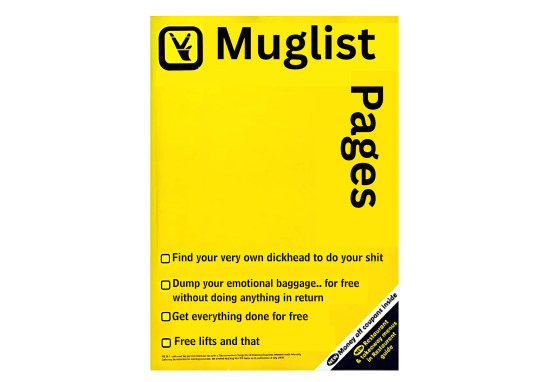
There’s a certain type of person who doesn’t really check in, doesn’t really listen, doesn’t really invest in you—until they need something. Then suddenly, your name lights up on their phone like you’re some customer service line that never closes.
They don’t ask how you are. They don’t offer anything in return. But when their WiFi’s down, when they need a lift, when their relationship’s falling apart, or they’ve run out of people to offload on—you’re the first name that comes to mind. Convenient, isn’t it?
They treat people like listings in a mental Yellow Pages: – You’re tech support. – You’re the free Uber. – You’re the unpaid therapist. – You’re the backup plan.
But you’re not seen as a friend—just a service.
These are the ones who drain you without realising—or worse, without caring. They operate in cycles: disappear when all’s good, reappear when it suits. They might even dress it up as friendship, throw the odd “love ya mate” out there to keep you on the hook—but deep down, it’s transactional. One-sided.
They don’t give back. They don’t offer support when you’re low. And they definitely don’t notice when you go quiet—because your value to them is rooted in what you provide, not who you are.
The sad truth? People like this often don’t even realise they’re doing it. They’re so used to the world revolving around their own needs that they never stop to consider the weight they’re putting on others. And when someone like you steps back, draws a line, or stops responding? They’re offended. Confused. As if you’ve broken some unwritten rule about always being available.
But life doesn’t work like that. People aren’t resources. And support isn’t a one-way street.
So here’s the reality: if someone only knows how to reach for you when it benefits them, but never shows up when you’re the one who needs a hand, they’re not your people. They’re just users who’ve mistaken kindness for obligation.
And eventually, those Yellow Pages get thrown out.
#OneSidedSupport#NotYourServiceLine#TakersGonnaTake#KnowYourWorth#EmotionalFreeloaders#FriendshipGoesBothWays#SupportIsMutual#PeopleArentResources#RespectBoundaries#RealConnectionsOnly#NoMoreUsers#CheckOnYourStrongFriends#NotJustWhenYouNeedSomething#GiveAndTake#HealthyBoundaries#DoneBeingConvenient#FriendshipNotFavourship#TimeToReassess#MutualRespectMatters#OneWayStreetEndsHere
0 notes
Text
Keyboard Warriors: Loud, Wrong, and Following the Herd
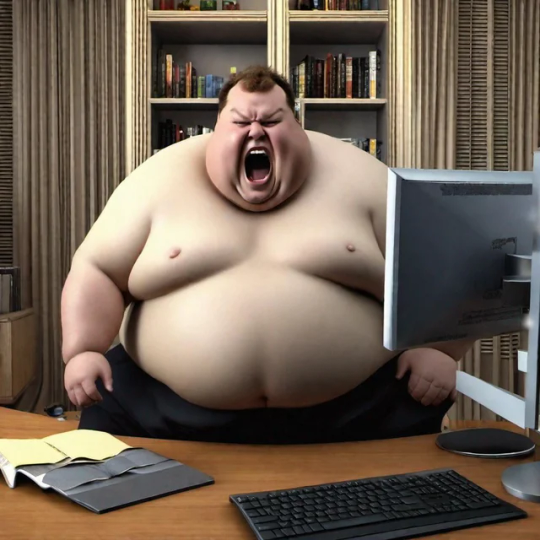
I’ve hit a point where I can’t scroll social media without coming across some clueless keyboard warrior spewing absolute bullshit like they’ve lived it, breathed it, studied it, and mastered it—when in reality, they haven’t got a clue what they’re talking about.
These people jump on whatever the latest opinion trend is, slap it into a comment, and act like they’ve uncovered some great truth. No critical thinking. No lived experience. Just parroting the loudest voice they saw that morning because it got likes and views. It’s like watching a flock of sheep arguing over directions—none of them know where they’re going, but they’re all yelling the loudest to feel important.
They don’t care about the truth. They don’t care about context. They just want a piece of the drama. They jump in, gas each other up, and attack anyone with a different view like they’re some internet moral police. It's performative nonsense. Empty noise from people who'd fold in seconds if real conversation or real consequences were involved.
And the worst part? They act like experts on YOUR life, YOUR choices, and YOUR experiences—when all they know is a snippet, a headline, or a twisted version shared by someone else just as clueless.
Here’s the truth: if you’re getting your opinions handed to you by trending posts, and your idea of research is scrolling the comment section, then you’ve got nothing to say that carries any real weight.
Think for yourself. Ask questions. Shut up sometimes. Because not every topic needs your hot take, especially when your take is cold, copied, and completely detached from reality.
I’ve got no time for sheep dressed as wolves.
And here’s what really winds me up: it’s not just the ignorance—it’s the arrogance. They speak with such conviction, such smugness, like they’re sitting on some throne of truth, when they’re actually just regurgitating half-baked opinions with zero substance. These are the same people who’ve never done the hard work of unlearning their biases, who never stop to ask if what they’re saying actually makes sense outside the echo chamber they’ve built around themselves.
They act brave behind a screen. But face to face? Silence. Shaky energy. A completely different tone. Because there’s no real backbone behind the bravado—just insecurity wearing confidence like a cheap mask.
It’s become this weird digital mob mentality. One person makes a statement—bold, baseless, usually out of context—and suddenly dozens pile on, adding their two cents without a single ounce of insight. No one stops to ask, “Does this even make sense?” or “Is this fair?” or “Do I even know what I’m talking about?”
Nope. They just follow the trend, point the finger, and press “post.”
Look, everyone’s entitled to an opinion. But when your opinion is built on assumption, misinformation, or just blind loyalty to whatever bandwagon is trending that week, it’s not truth—it’s noise. And we’ve got more than enough of that already.
So yeah, be passionate. Be involved. Have a voice. But for the love of decency, know what you’re talking about before you throw stones at people who actually live the reality you’re pretending to understand.
The internet doesn’t need more performative outrage. It needs more people who can think without being told what to think.
#KeyboardWarriors#SheepMentality#ThinkForYourself#SocialMediaMadness#BandwagonOpinions#DoYourResearch#EmptyOpinions#StopTheNoise#PerformativeOutrage#EchoChamberCulture#ParrotTalk#InternetMob#BaselessArguments#TruthOverTrends#RealTalkOnly#SayLessThinkMore#DigitalDrama#BlindFollowers#SpeakWithSubstance#NoBackboneBehindTheScreen
0 notes
Text
Do We Need to Forgive to Let Go?
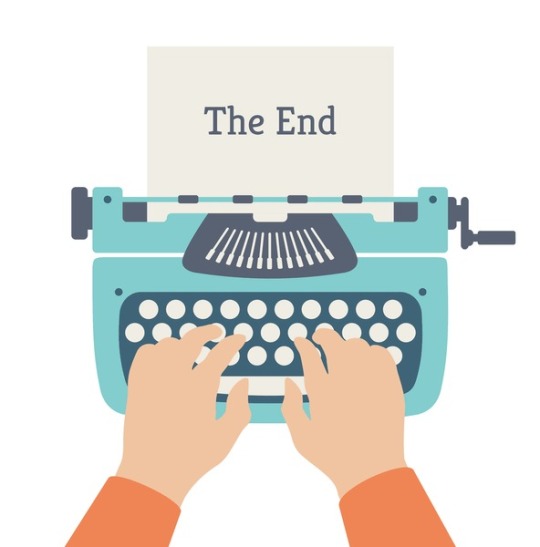
It’s a question I’ve circled for a long time—do we really need to forgive the people who wronged us in order to move on? Or can we heal without handing over something that feels, honestly, undeserved?
Forgiveness is complicated. Some say it’s the key to freedom. Others say it’s optional, especially when the pain runs deep and the scars still sting. I’ve wrestled with both sides. I’ve felt the pull to “be the bigger person,” but I’ve also felt the fire in my gut that says, “They don’t deserve a free pass.”
Because truthfully? Some people knew exactly what they were doing.
They weren’t careless—they were calculated.
They weren’t struggling—they were selfish.
And when the dust settled, they never apologised. Never acknowledged the damage. Some even doubled down.
So how do you forgive that?
How do you look at people who dismantled parts of your life and say, “I forgive you,” without it feeling like a betrayal of yourself?
Here’s where I’ve landed: forgiveness isn’t about them. It’s about choosing to stop dragging that pain into every tomorrow.
It doesn’t mean what they did was okay. It doesn’t mean they’re off the hook.
It just means I’m not letting them have power over my peace anymore.
I’m not doing it because they earned it. I’m doing it because I want closure—not confusion, not resentment, not unspoken conversations that play on repeat in my head.
I want that space back in my heart. I want my energy back. I want to shut the door on that chapter, not stand at the threshold re-reading every page.
So…
Regardless of whether I feel it is needed— I forgive the people who did me over. Not for their sake. Not because they asked, but because I want closure on my past. And that chapter of my life is now closed.
#emotional healing#finding balance#inner peace#mental clarity.#mindfulness journey#personal growth#reconnect with yourself#rediscover your passions#self-care practices#forgiveness#moving on#moving forward#new chapter
0 notes
Text
Men’s Mental Health Week: This Isn’t a Joke
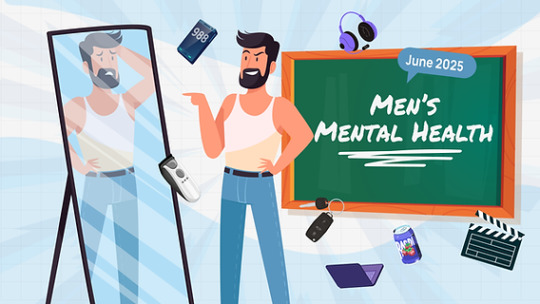
Last week was Men’s Mental Health Week—a time that should be focused on awareness, support, open conversations, and breaking down the walls that have kept too many men suffering in silence for too long.
But instead of seeing compassion, unity, and meaningful dialogue, what I’m seeing on social media has genuinely disgusted me.
I’m seeing videos—actual performances—by women mocking male suicide. Skits, jokes, comments implying that a man taking his own life is somehow a win for them. Laughing about it. Dismissing it. Using it as content.
And I’m sickened.
Let’s be absolutely clear: there is nothing funny about suicide. There is nothing empowering about turning a human being’s lowest moment into a punchline. And if you think mocking someone’s death—especially during a week dedicated to trying to prevent more of them—makes you edgy, sassy, or strong, you’re part of the problem.
Men are dying in silence. In the UK alone, three out of four suicides are male. That’s not weakness. That’s not karma. That’s pain going unheard and untreated. That’s a system that tells men to shut up, man up, tough it out—and a culture that punishes them when they try to open up.
So when I see women weaponising male mental health—treating it as a joke or a score-settling opportunity—it doesn’t just make me angry, It makes me heartbroken.
Because the truth is: men already feel like they can’t talk. Can’t cry. Can’t break.
So imagine one of those men scrolling social media, mustering the courage to speak up or ask for help—
And what he sees is someone laughing at the thought of him taking his own life.
What message does that send?
What chance are we giving him to believe he matters?
Where’s the empathy that’s supposed to be the foundation of any decent society?
This isn’t about saying men are perfect. It’s not about invalidating women’s pain or experience. But compassion doesn’t work on a sliding scale. If you believe in mental health awareness, it should apply to everyone. And if you’ve ever shared a post saying “check on your mates,” “it’s okay not to be okay,” or “mental health matters,” then this kind of mockery should turn your stomach the way it does mine.
So to anyone making or sharing these kinds of videos:
What are you really achieving?
What message are you putting out there—not just to men, but to young boys watching, learning, absorbing the world around them?
Because one day that boy could be your brother, your dad, your son, your partner, your mate. And if he breaks—if he reaches his limit—are you going to laugh then too?
Men’s Mental Health Week isn’t about special treatment. It’s about basic humanity. It’s about recognising that pain doesn’t discriminate and that everyone deserves the chance to be heard, supported, and kept alive, and most importantly telling men it's okay to feel like that and it's okay to seek support and not go it alone.
To the good people out there still fighting the good fight—thank you. Keep speaking. Keep listening. Keep making space for honesty and healing. We need it now more than ever.
And to the ones laughing at suicide:
Grow up. Do better. Or stay silent—because lives are on the line.
0 notes
Text
A Clear Head and a Full Heart

I don’t usually give much credit to supplements. I’ve always thought if you eat right, move a bit, sleep when you can, and stay away from energy vampires, that’s enough to keep you ticking. But every now and then, someone close to you throws you a lifeline you didn’t even realise you needed—and this time, it came in the form of a bottle.
Before anyone jumps to conclusions: yes, it’s all legal, all above board. No magic pills or miracle cures here—just a recommendation from a good long-term friend who’s always looked out for me. Cheers, Layne.
For the last few weeks, I’ve been in a bit of a fog. Not dramatically down or anything, just… off. Numb. The kind of stretch where motivation evaporates and you can’t quite work out why nothing seems to stick. Everything felt a bit like static. I wasn’t seeing clearly. I wasn’t myself.
Then he suggested some supplements he’d tried—nothing fancy, just a combination of things to support energy, focus, mood. I figured I had nothing to lose, so I gave them a go.
After just three days, the shift has been ridiculous—in the best way. I feel awake again. Not just in the “I had a coffee” way, but properly present. I’ve started waking up with purpose. I want to move. I want to do. I actually want to get dressed, take care of myself, get stuck in. I feel like I’ve plugged back into the world after running on low power mode for far too long.
But more than that—my head is clear. I’ve stopped interpreting things through a negative lens. I’m not second-guessing every word people say to me or hunting for criticism hidden in concern. I’m seeing things as they are, not how my tired brain twisted them to be.
I realise now that some of the people I’ve dismissed over the last year—people trying to look out for me, trying to raise red flags or put a hand on my shoulder and say, “Hey, I’m worried about you”—they weren’t out to control me or trip me up. They were doing what good people do: trying to protect someone they care about. And for the first time in a long time, I’m able to accept that love without suspicion.
I don’t know exactly what happened to me in recent weeks. Maybe it was burnout. Maybe it was emotional exhaustion. Maybe I just got stuck in my own head for too long. But whatever it was, I feel back on form. Not fixed—because I don’t think we’re ever “done” with ourselves—but definitely back to the version of me I’d started to rediscover before life pulled me sideways again.
So, thanks Layne. For the recommendation. For being patient when I wasn’t. For having my back like you always have.
Here’s to clearer minds, better days, and the people who never give up on us—even when we’re struggling to see ourselves.
#emotional healing#finding balance#inner peace#mental clarity.#mindfulness journey#personal growth#reconnect with yourself#rediscover your passions#self-care practices#self-discovery
0 notes
Text
Time to Shut the Door Again
So, here’s the truth.
This whole "feeling everything" experiment I've been trying out these past few months—the one where I open up, spill my guts on this blog, try to process the past like some sort of emotional archeologist? It’s stopped working. Completely. It’s not cathartic anymore. It’s not healing. It’s just heavy. Crushingly, relentlessly heavy. I gave it a proper go. I really did. I peeled back the layers, cracked open the old boxes in the attic of my memory, let the ghosts of what-was drift around in the daylight for a while. I thought maybe if I let myself sit in it, wade through it, breathe it in instead of shoving it down, I’d find some sense of peace. That I’d feel lighter. Freer. Whole.
But instead? I’ve been dragging my feet through quicksand. Emotionally hungover. Spiritually knackered. Each post felt like bleeding onto the page, and instead of healing the wounds, it just kept ripping them open wider. And I’m tired. Bone-deep tired. Not the kind that sleep fixes. The kind that eats away at you quietly, day by day, until you're not even sure what part of you is still intact.
And honestly? I miss the old version of me. The one who didn’t wallow. The one who didn’t over-analyse every ache, every scar, every damn piece of emotional baggage. I miss the version of me who took the hits, muttered “fucks sake,” and got on with it. No drama. No soul-searching. Just grit. Just survival. That version wasn’t untouched by pain—far from it. But he didn’t hand over the steering wheel to it. He knew how to compartmentalise, how to armour up, how to keep the show moving when everything behind the scenes was falling apart.
That’s who I need to be again.
So I’m going back to basics. Back to the blueprint that got me through before. Back to strength—not the performative kind, but the sort that comes from gritting your teeth, pulling on your boots, and refusing to drown no matter how high the water gets. I’m putting the lid back on the box. Taping it shut. Maybe for another 25 years. Maybe forever. Because truthfully, this digging, this endless unpacking of trauma and grief and regrets—it hasn’t made me feel lighter. It’s just let the darkness settle in like damp in the walls. And I can’t live like that. I won’t live like that.
I’m not pretending I’m fine. I’m not standing here claiming I’ve suddenly healed or that all the old wounds have magically disappeared. They haven’t. Some things broke me in ways that may never be fully fixed. Some people left marks I’ll carry for life. But here’s the thing: I don’t have the luxury of falling apart. Not in this world. Not with everything life keeps throwing. There’s no pause button, no timeout for emotional rehab. Life keeps marching, and you either march with it or get trampled.
So I’m suiting up. Putting the armour back on. Dusting off the sarcasm. Rebuilding the no-nonsense, head-down, get-through-it version of myself that’s always kept me standing. Not because he’s the most emotionally evolved, but because he’s the one who survives. The one who doesn’t crumble under pressure. The one who doesn’t bleed out for things that can’t be changed.
Not broken. Not lost. Just done.
Done with bleeding for a past that refuses to let go. Done with dragging it behind me like a sack of stones. Done with trying to fix what isn’t mine to fix anymore.
It’s time to move forward.
Let’s get back to writing about anything other than myself.
Let the past stay in the box.
0 notes
Text
Wading Through the Weight of It All

I don’t really know where to start with this. For years—decades, really—I’ve just cracked on. Stuck it in a box. Shut the lid. Moved forward. That was how I coped. That was survival. But lately, it’s like the box has exploded, and I’m being hit with the full force of over 25 years of… well, shit. Hurt. Grief. Anger. Disappointment. All of it. Stuff I thought I’d buried so deep it’d never see the light of day again.
And now? It’s just there. All of it. Lingering under the surface, bursting through when I least expect it. I find myself getting choked up in the middle of conversations, staring into space and replaying things I haven’t thought about in years. And it’s exhausting. Not just mentally, but physically. Like carrying a weight that’s welded to your chest. Everything takes a bit more effort now. Getting out of bed. Smiling at people. Concentrating. Being “alright.”
I used to pride myself on being unshakeable. People would say, “You’re so strong, you’ve been through so much,” and I’d nod like it meant something good. But now I’m not sure it did. I think I just shut off. And now I’ve got all these feelings with nowhere to put them. I don’t know what to do with them. They don’t come with a manual. There’s no guidebook for how to suddenly feel the weight of every wound you never tended to.
It’s not that I’m falling apart—at least, not in a dramatic sense. I still function. I still go to work. I still laugh sometimes. But everything feels a bit more fragile. Like I’m walking around with cracked glass inside me. Some days I can pretend it’s not there. Other days, it cuts right through.
And what makes it worse is not having answers. Not having a clear direction or fix. I’m just here, raw and wide open, trying to carry on while bits of the past keep tapping me on the shoulder, asking to be dealt with.
Maybe this is the cost of healing. Maybe this is what happens when you stop running from yourself. I don’t know. All I know is it’s hard. And I don’t have a neat ending for this post. No life lesson. No breakthrough. Just honesty.
I’m feeling everything I tried not to. And I don’t know what to do with it. But I’m here. I’m trying. Maybe, for now, that’s enough.
#MentalHealthJourney#EmotionalHealing#FeelingItAll#PastTrauma#HealingHurts#RawAndReal#FacingThePast#UnpackingTrauma#MentalLoad#ItsOkayToNotBeOkay#VulnerabilityIsStrength#EmotionalWeight#GriefAndGrowth#SurvivorStory#MentalHealthAwareness#HonestReflections#ProcessingPain#StrongerThanYouThink#HealingTakesTime#UKMentalHealth
0 notes
Text
The Day I Lost Myself
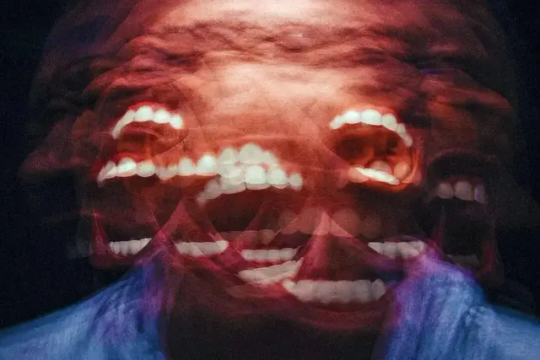
The other night had a bit of a meltdown. Actually, no — I had a full-blown emotional eruption. Twenty odd years of pain, pressure, hurt, silence, and swallowed pride exploded out of me in one long, angry, chaotic session.
It came out raw, unfiltered, and ugly. All the things I never said — all the times I bit my tongue to keep the peace, all the moments I smiled when I was breaking inside — came rushing out like a tidal wave. And I wasn’t prepared for the person I became in that moment.
Those who know me know I don’t get angry. Not really. Not like that. I am grumpy yes, snappy sometimes, but I’m usually the one who tries to stay calm, tries to keep perspective, tries to see the best in people even when they don’t deserve it. I’ve always carried myself with a quiet resilience, because that’s just what I’ve had to do. But that version of me vanished the other day.
In my place was someone I barely recognised. I was sharp-tongued. I was loud. I said things I shouldn't have. I made it all about me — every word, every emotion, every ounce of the pain that had built up in my chest over the years. I let it spill out like venom, and it hurt. Not just me, but others, and i did it to somebody who didn't deserve it, who was just trying to help.
For the record, i was on my ownI didn’t hurt anyone physically. I didn’t do anything outrageous. But words can be weapons, and I wielded mine like someone who’d forgotten what it means to be gentle.
And now?
Now I’m stuck in this uncomfortable place where I don’t like myself very much. That person who came out — the one who shouted and snapped and demanded to be heard — he scared me. he felt like a stranger wearing my skin. I know it was all born from trauma, from grief, from holding it all in for far too long… but knowing that doesn’t make it any easier to accept.
I hurt people I care about. Even if it was just with words, even if they understand or forgive, I don’t forgive myself.
So where do I go from here?
I honestly don’t know.
Maybe the first step is acknowledging it — not hiding from it or pretending it didn’t happen. Maybe this meltdown was the dam finally breaking. Maybe, just maybe, it needed to happen. Because as much as I hate the way it happened, I can't deny that part of me has been crying out for release for years.
I’ve spent so long being strong, being silent, being the "stable one" — I forgot I was allowed to break, too.
But breaking doesn’t have to mean destroying.
So here I am. Sitting in the wreckage of a bad day, trying to rebuild. Trying to be honest. Trying to be better.
Not perfect. Not unbreakable. Just… human.
And to the person who took the brunt of it. I am sorry. So sorry.
And maybe, for now, that’s enough.
#MentalHealth#EmotionalBreakdown#MensMentalHealth#AngerManagement#SelfReflection#HonestMoments#HealingJourney#RawAndReal#EmotionalHealth#It’sOkayToNotBeOkay#SilentStruggles#MenFeelToo#BreakingPoint#GrowthThroughPain#VulnerabilityIsStrength#UnfilteredTruth#InnerWork#LearningToHeal#WordsCanHurt#OwningMyMistakes
0 notes
Text
The Internet: The Harshest Weapon We’ve Ever Held
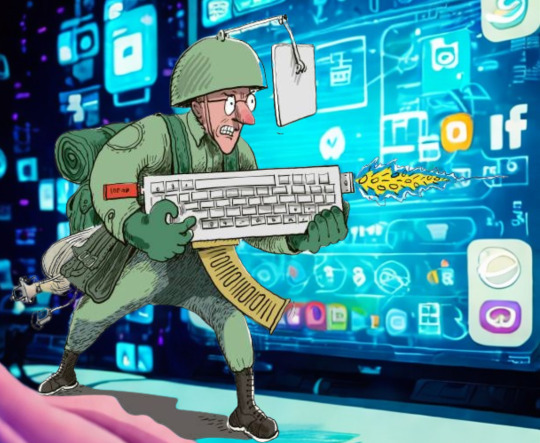
I’ve spent a lot of time this past few days thinking about how powerful the internet is—not just in a positive way, but in a deeply dangerous one too. It’s not just a tool anymore; it’s a weapon. And the most frightening part? We all hold it. We all have access to it, and with just one post, one comment, one photo, we can destroy someone’s life. Let’s not sugarcoat it. The internet can be brutal. It doesn't forget, and it rarely forgives.
People talk about cyberbullying and online shaming like they’re just side effects of the digital age, but they’re not side effects. They’re symptoms of a deeper issue: the way we’ve come to see people—celebrities, strangers, even friends—as characters instead of human beings. We scroll through lives like they're entertainment, waiting for someone to mess up so we can pile on, judge, and then move on to the next. It’s a cycle. We consume, we criticise, we cancel. And all of this happens while the person on the receiving end is left to pick up the shattered pieces of their life. But lives don’t reset like a timeline does.
Take Jesy Nelson, former member of Little Mix, one of the most successful girl bands the UK has produced in recent years. I am not a fan, but I remember seeing her get attacked from all angles and it hit me hard. From the moment she appeared on The X Factor, Jesy became a target for relentless online abuse—most of it centred around her appearance. The comments weren’t just mean. They were vicious. Day after day, year after year, she was bombarded with insults, body shaming, comparisons, and cruel memes designed to break her. And eventually, they did.
Jesy has been open about the devastating impact this had on her mental health. In interviews and in her TV documentary Odd One Out, she admitted to experiencing depression, anxiety, and even suicidal thoughts. She revealed that the bullying made her feel worthless and that the comments echoed in her head even when she was off-stage, away from the spotlight.
Here was a young woman living the dream—millions of fans, global success, a career many would envy—and yet, behind closed doors, she was crumbling under the weight of strangers’ words. That’s how powerful the internet can be. It can reduce someone with talent, heart, and humanity into a shell of who they were—if we let it.
Jesy eventually made the brave decision to step away from the band to focus on her wellbeing. She put herself first. But the fact that it ever got that far speaks volumes about how far we still have to go.
But the damage the internet can cause doesn’t end with public shaming. It goes deeper. It’s more subtle and more manipulative at times. It offers false hope, easy illusions, and a digital world that can look much shinier than reality.
Scroll through social media and you’ll find thousands of posts promising overnight success, perfect bodies, get-rich-quick schemes, or ultimate happiness if you just click a link or follow a certain path. It’s easy to believe in a better life when it's packaged in a well-edited video or an influencer’s smiling face. But those promises are often empty. Behind the filters and the captions are people struggling just like everyone else.
The internet leads people into thinking they’re not enough. That they’re behind. That everyone else has it figured out. That success is instant. That love is perfect. And that if your life doesn’t look like the highlight reel you see online, you’re failing.
But even more dangerously, misinformation spreads in these same spaces. It doesn’t just influence personal decisions—it influences history.
Think about how online misinformation has impacted elections around the world. From the United States to the UK and beyond, we’ve seen how social media algorithms can be exploited to spread false narratives, target vulnerable voters, and stir division. Bot accounts, fake news, deepfakes—they all play into the manipulation of truth. People aren’t just being deceived; they’re being directed. Influenced. Controlled.
It’s terrifying when you realise how much of the world is being shaped not by facts or genuine voices, but by the loudest digital noise. Public opinion, policy decisions, global conflicts—many of them are influenced by what trends, not necessarily by what’s true.
And yet, here’s the paradox.
The internet isn’t all bad. In fact, it’s one of the most incredible inventions of our time. It has the power to connect people across the globe, amplify important causes, raise millions for charity, offer education to those who wouldn’t otherwise access it, and provide support to those who feel utterly alone.
We've seen hashtags spark revolutions. We've watched as small grassroots campaigns online have grown into powerful social movements—#MeToo, #BlackLivesMatter, #FreeSchoolMeals. We've seen people use social media to find missing loved ones, rally around the vulnerable, and shine a spotlight on injustice. We've watched communities form that have saved lives—mental health groups, bereavement networks, LGBTQ+ spaces, recovery circles. For some, the internet isn’t just connection—it’s salvation.
So how do we reconcile it?
Maybe it’s not about the internet itself. Maybe it’s about us.
We are the ones who control what gets posted, what gets shared, what gains traction. We are the ones who choose whether to shame or support, whether to be cruel or kind. We are the algorithm in the end—our clicks, our views, our comments, our silence.
The internet reflects who we are as a society, but it also shapes who we become. That’s why we need to take responsibility for the power we hold in our hands every time we pick up a phone.
Let’s be more cautious with our words. Let’s pause before we post. Let’s fact-check before we share. Let’s remember that behind every screen is a beating heart, a messy life, a complex person.
Because yes—one post can change a life. But it doesn’t have to ruin one. It could save one, too.
So let’s use this weapon wisely. Let’s make it a lifeline instead of a loaded gun.
The world doesn’t need more noise. It needs more truth. More care. More humanity.
And that starts with us.
#DigitalResponsibility#ThinkBeforeYouPost#OnlineKindness#MentalHealthMatters#SocialMediaAwareness#BeKind#CancelCancelCulture#TruthOverClicks#OnlineBullying#UseYourVoiceWisely#InternetImpact#RealPeopleRealLives#StopTheShame#DigitalWellbeing#EmpathyOnline#SocialMediaPower#WordsMatter#ProtectEachOther#HopeOverHate#jesy nelson
1 note
·
View note
Text
Do Men Really Matter? Yes we f*cking do!!
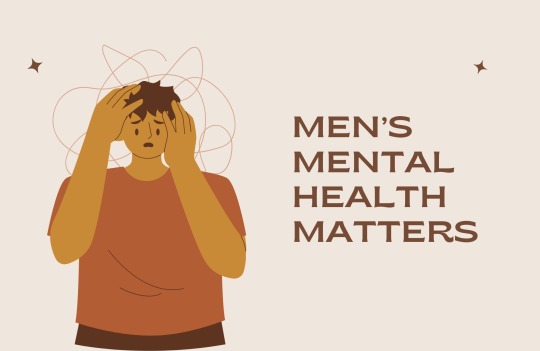
Yet again, the world has lost another man who was struggling with life after being told to get over it and man up over and over again.
How many more times do we have to read those gut-wrenching headlines? How many more families have to be shattered? How many more mothers, fathers, partners, and children have to ask themselves “why didn’t he talk to someone?” when the real question should be: Why didn’t anyone listen when he did?
I am sick to death of this toxic, outdated idea that men aren’t allowed to feel. That our pain is somehow less valid because we’re “supposed” to be strong. That we should “man up,” shut up, and get on with it. Well guess what? That bullshit is killing us.
In the UK, 115 people take their own lives every week. Out of those, 74% are men. Let that sink in. Three out of four.
Let me break that down even more: suicide is the leading cause of death for men under 50 in the UK. Not cancer. Not heart disease. Not car accidents. Suicide. Death by hopelessness. Death by silence. Death by a society that looks at a struggling man and tells him to stop being weak instead of offering him a damn lifeline.
And what do we do every time a man takes his life? We mourn. We share crisis helpline numbers. We write moving tributes about how kind he was, how no one saw it coming. But then we go right back to ignoring the signs in the next man. We keep feeding the same poisonous narratives: “real men don’t cry,” “it’s not that bad,” “don’t be dramatic,” “other people have it worse.”
I’m furious. I’m heartbroken. I’m tired.
Because I’ve seen it. I’ve lived it. I’ve sat across from men—good, decent, loving men—who have carried the weight of the world on their shoulders in silence because they didn’t want to be a burden. Because the people around them didn’t take them seriously. Because the shame of not being okay was greater than the fear of death.
I was in a relationship where when I was grieving the death of my mother and was called "needy" "over emotional" and a "wimp" amongst other nasty derogatory things when I had moments where I couldn't be the 'man' she wanted me to be. It's bullshit!
We need to stop treating mental illness in men like it’s a character flaw. We need to stop brushing off anxiety and depression as weakness. We need to create spaces where men feel safe to talk—really talk—without fear of judgment or mockery. We need to teach our boys that strength is not found in silence, but in honesty.
Until then, men will keep dying. Quietly. Alone. And nothing will change—unless we make it change.
If you’re reading this and you’re struggling: I see you. You matter. Don’t listen to the voice that tells you you’re weak for hurting. You’re human.
And if you’re someone who’s ever told a man to “get over it", man up or called them "needy" when they they have nowhere else to go and open up to you cos they trust you enough to do so, I hope you sit with that for a while. Really sit with it. Because next time, the obituary could be someone you know... .Or worse—someone you silenced with your comments.
#emotional healing#finding balance#inner peace#mental clarity.#mindfulness journey#personal growth#reconnect with yourself#mens mental health#mentalhealthawareness#menmatter#self-care practices#suicideprevention#suicideawareness
0 notes
Text
The Art of Beating Myself Up (Over Trivial Things)
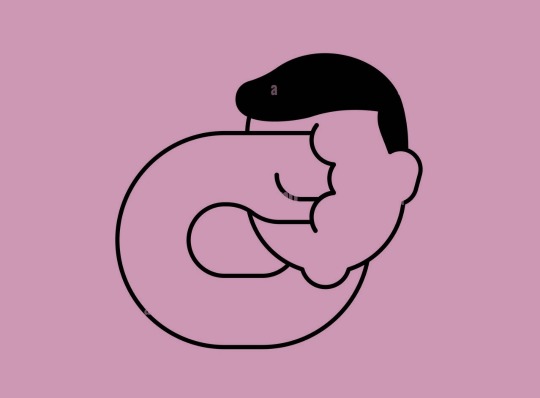
There’s a peculiar skill I’ve honed over the years — not one I’m proud of, nor one that earns applause — but a skill nonetheless. I’ve become rather exceptional at beating myself up over the smallest, most insignificant things. A minor slip of the tongue, a forgotten message, a plan I didn’t follow through on — you name it, I’ve probably crucified myself for it.
It’s almost comical, in a way. Someone else spills their tea, and we laugh it off. I spill mine, and suddenly I’m questioning my entire sense of competence and self-worth. How could I be so careless? Why didn’t I see that coming? It spirals. And while the world carries on without skipping a beat, I’m stuck in my own head, replaying the moment like a broken record.
I allow life to get the better of me far too often. I give it permission, really. I let the day-to-day nonsense nibble away at me — a critical comment here, a difficult phone call there — until I’m left feeling raw and frayed around the edges. It’s not the grand disasters that wear me down. It’s the pebble-in-the-shoe moments that I fail to shake off, letting them become boulders on my back.
There’s a strange comfort in it too — a warped familiarity in self-blame. Perhaps because I think if I’m hard enough on myself, I’ll somehow pre-empt the judgement of others. Like beating them to the punch. But all it really does is sap my strength and cloud my perspective.
Some days I get it right. Others… not so much. But I’m learning that imperfection isn’t failure, and mistakes don’t need to be carried around like a heavy rucksack I’ve chosen to wear every day. Life is messy, unpredictable, and — frankly — exhausting. But that doesn’t mean I have to let every stumble define me or weigh me down.
I’m working on it, slowly. Trying to show myself the same patience I show others. Reminding myself that it’s okay to mess up, to fall behind, to not always have it together. Self-compassion isn’t indulgence — it’s survival. Because if I don’t show up for myself, who will?
So here I am, trying to unlearn the art of self-punishment and replace it with something softer. Something kinder. And maybe, just maybe, allowing life to get the better of me a little less often.
#emotional healing#finding balance#inner peace#mental clarity.#mindfulness journey#personal growth#reconnect with yourself#rediscover your passions#self-care practices#self-discovery#self deprecation
0 notes
Text
When the World Feels Too Much: Living with a Lack of Motivation
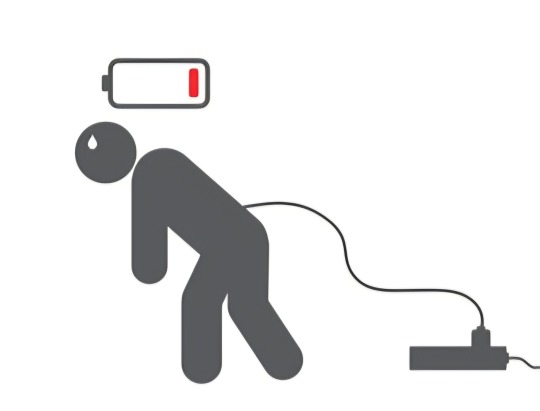
There are days—sometimes weeks—when I don’t want to leave the house. Not because I’m busy or comfortable, but because I just can’t bring myself to move. It’s like I’m stuck in this fog where even the simplest tasks feel overwhelming. I know I’m not alone in this, but when it hits, it’s isolating all the same.
Motivation used to come easier. I’d have plans, goals, things to look forward to. But lately, everything feels like an uphill battle, and I’m too tired before I even start. The idea of going outside, seeing people, smiling, pretending everything’s okay—it’s exhausting. So I stay in. I make excuses. I disappear a little bit more each day.
Some people call it laziness, but they don’t see what’s happening underneath. It’s not that I don’t want to get things done—it’s that I can’t find the energy or the reason. The guilt is constant. I sit in silence, surrounded by half-done chores and unread messages, and I beat myself up for not being stronger.
Social media doesn’t help. Everyone else seems to be out living their best lives while I’m here struggling to put socks on. It’s hard not to compare, even when I know deep down that most people are just showing the highlights.
But here's the thing I’m slowly starting to learn: it’s okay to feel like this. It’s not a failure. It doesn’t make me weak or useless. It just means I’m human—and right now, I’m tired. And that’s okay.
I’m trying to be kinder to myself. To take tiny steps. Maybe today I’ll open the window and let in some fresh air. Maybe tomorrow I’ll go outside for something that isnt work , just for five minutes. And if I can’t, that’s alright too.
If you’re reading this and you know this feeling, I see you. You’re not lazy. You’re not alone. Be gentle with yourself, even when your brain tells you that you don’t deserve it. The world can wait. Right now, your only job is to keep going—one breath, one step, one day at a time.
#emotional healing#finding balance#mental clarity.#mindfulness journey#personal growth#inner peace#reconnect with yourself#self-care practices#rediscover your passions#self-discovery#im so tired#motivation
1 note
·
View note
Text
Two Weeks of Living in a Fog of Apathy

This past two weeks or so I’ve found myself in a place that’s hard to explain—somewhere between exhaustion and indifference. It’s as if I’m watching life happen through a pane of glass, detached from everything going on around me. I get up, I go through the motions, but it all feels flat. Lifeless. Apathy has crept in quietly and settled itself into every corner of my days.
There’s no dramatic breakdown, no explosive moment that triggered it. Just a series of things—disappointments, losses, unspoken pressures, emotional fatigue—that have worn me down. One by one, they’ve chipped away at the parts of me that used to feel alive. And now, instead of sadness or frustration, I mostly feel... nothing.
I wish I could point to one specific event and say, “That’s what did it.” But it’s been more like a slow erosion. The kind of emotional wear and tear that happens when you keep trying to hold everything together for too long. When you keep saying “I’m fine” because you’re too tired to explain that you’re not.
Some days, I wake up and feel completely blank. Not even low—just absent. The things I used to care about, the passions I once poured myself into, now feel distant, like echoes of a life that belonged to someone else. I don’t look forward to much anymore, not because I don’t want to, but because it’s like that part of my brain has switched off. Even the things that should bring joy or excitement don’t register the way they used to.
I still show up. I still smile when expected. I still answer messages, attend events, fulfil responsibilities. But inside, there’s this persistent feeling of disconnect. A kind of emotional fog that mutes everything. I keep waiting to feel something—anything—that breaks through. But most days, all I feel is tired.
It’s not depression, exactly. It’s more subtle than that. More insidious. Depression often comes with deep sadness, heavy emotions that crash over you like waves. How I feel is quieter. It’s the stillness after the storm. The moment when the waves have stopped, and you’re just floating in grey silence, unsure whether you’re sinking or just stuck.
I’ve stopped reaching out as much this past couple of weeks. I’ve stopped expecting anything from people. Not because they’ve done anything wrong, but because I no longer have the energy to hope for comfort or understanding. I’ve learned that when you start to go numb, you also stop asking to be seen.
I’m not writing this for sympathy. I’m not even sure I’m writing it for a solution. I think I’m writing it because it gets us out of my head, and I suppose someone else out there might need to know they’re not alone in this. That feeling numb doesn’t make you broken. That losing interest in life doesn’t mean you’ve failed at it. It just means you’ve been carrying too much for too long, and your mind and body are trying to survive the only way they know how—by shutting down the noise.
What I’ve learned, painfully and slowly, is that apathy is often a response to overwhelm. When your nervous system has had enough. When your heart has taken too many hits. When your soul has been stretched too thin. So if you’re there too—numb, tired, indifferent—I want you to know that it makes sense. You’re not weak. You’re just worn out.
I don’t have a neat, uplifting ending to offer. I’m still in this. Still waking up in the fog. Still waiting for the moment I feel connected to life again. But I do believe that apathy isn’t the end—it’s a pause. A waiting room between who you were and who you’re becoming. And maybe, just maybe, being in that space is part of the healing too.
For now, I’m giving myself permission to feel nothing. To rest in the stillness. To not force purpose or pretend happiness. Because somewhere in all of this emptiness, I know there’s still a flicker of me left. And that has to be enough......for now.
#emotional healing#finding balance#inner peace#mental clarity.#mindfulness journey#personal growth#reconnect with yourself#rediscover your passions#self-discovery#self-care practices
0 notes
Text
Seven Years Without You, Mum

Today marks seven years since you left us, Mum. Seven years. It doesn’t even seem real when I say it out loud. In some ways, it feels like it happened yesterday — the pain still raw, the emptiness just as heavy. And in other ways, it feels like a lifetime has passed since I heard your voice or saw your smile.
Anniversaries like this are always strange. You don’t want to mark them because the truth is, you’d rather not have to at all. I’d give anything for there to be no anniversary — for you to still be here, sitting with a cuppa, telling me off in that gentle way only you could. But this date comes round every year like clockwork, and I find myself unable to ignore it.
Grief doesn’t follow a pattern. People say it gets easier with time, and maybe it does in some ways — but it never really goes away. You just learn to carry it differently. The weight doesn’t lessen, but you grow stronger around it. I’ve had to. I think you’d be proud of that.
There’s not a day that goes by where you’re not in my thoughts. I hear your advice in my head when I’m stuck. I still go to pick up the phone sometimes, to tell you about something silly or exciting, before I remember. I see you in my daughter, in her kindness, her sass, her strength. You’d absolutely adore her — I wish you could’ve known her like I do now.
Since you’ve been gone, life has changed in ways I never expected. I’ve struggled. I’ve grown. I’ve laughed, I’ve broken, I’ve rebuilt. There were moments I didn’t think I’d get through — and others I wish you’d been there to witness. I still catch myself turning to the sky, telling you things, hoping somehow you hear me. Maybe you do
Some days, the grief crashes in like a wave — strong, unforgiving, relentless. Other days, it’s a quiet ache in the background. But always, you are there. In the music I love. In the food I cook. In the way I love others. In the way I try to be strong for those who need me.
Seven years feels too long to have gone without a hug from you. Too long without your wisdom, your laugh, your unconditional love. But as much as I miss you, I carry you with me. In every step, in every decision, in every little bit of strength I manage to find — you’re there.
I don’t know if it gets easier, Mum. But I do know that you’d want me to keep going. To keep loving, keep fighting, keep living. And I’m trying. Some days I get it right, some days I don’t. But I’m trying, always
So today, I light a candle. I play the songs you loved. I talk about you. I let myself cry, and I let myself smile. Because seven years without you has taught me that grief and love walk hand in hand. And oh, how deeply I still love you.
Missing you always.
0 notes